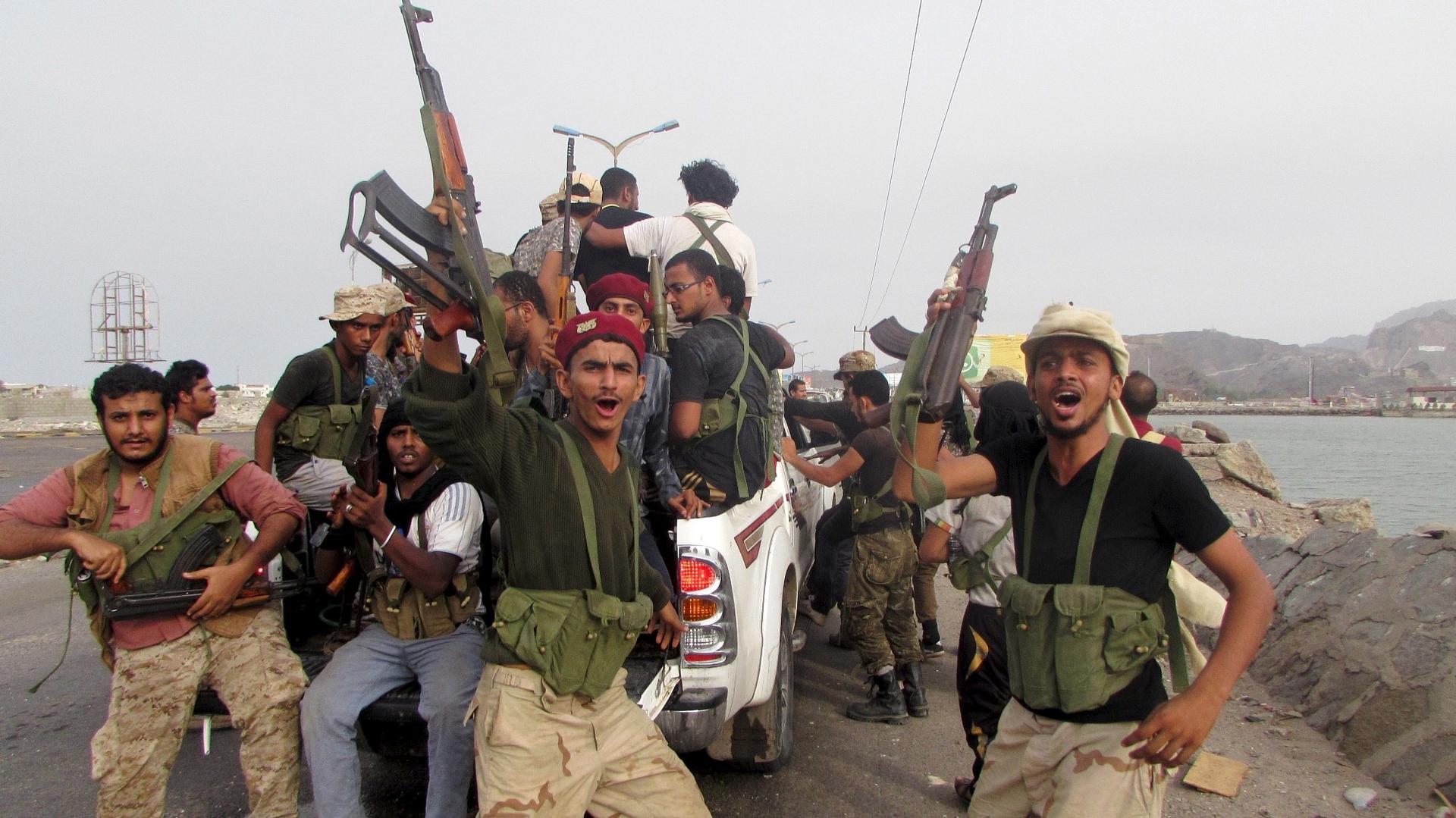Yemen is just one theater for the proxy war between Iran and Saudi Arabia. These militiamen in the southern city of Aden are backed by Saudi Arabia.
President Barack Obama defended the Iran nuclear deal Tuesday at a veterans' conference in Pittsburgh. He told the vets that the Iran deal is a ‘smarter’ alternative to putting more American lives "on the line" in another war.
Secretary of State John Kerry has said he believes the agreement could lead to other diplomatic breakthroughs in the region, where Iran is a significant player.
But some analysts argue that it could have the opposite effect.
In an essay in Foreign Policy, the BBC’s Kim Ghattas says "this success will only exacerbate regional tensions in the short term by escalating the cold war between Saudi Arabia and Iran."
Ghattas writes:
“The negotiations have concluded in Vienna as the rivalry between Tehran and Riyadh is raging across the Middle East, and the deal will make it only harder to get under control. While Riyadh will likely publicly acquiesce to the agreement, the depth of its hostility toward Tehran remains unchanged. If anything, a deal that Saudi Arabia perceives as a rapprochement between its key ally [the United States] and its archnemesis [Iran] will only intensify the proxy war.”
Tensions between the two powers have ebbed and flowed since the Iranian Revolution in 1979, which left Saudi Arabia feeling challenged for the role of leadership in the Islamic world. Iran is a Shiite Muslim state, and uses its power and influence to promote what it sees as Shiite interests around the world. Saudi Arabia sees itself as the champion of Sunni Muslim interests, and uses its money and huge diplomatic clout to do the opposite — promote Sunni interests and counter Iran.
The conflict over theology and power and influence has led to a proxy war in many countries of the Middle East: Iraq, Syria, Yemen and Libya are all hot conflicts, while competition for influence is felt in Lebanon, Bahrain and elsewhere.
In an interview Ghattas adds, “every action by every one of those players is scrutinized by their opponent, by their rival. And that leads to a never-ending cycle of distrust, which is becoming increasingly harder to break, because a lot of the players that the two sides also encourage, or the narrative that they feed, about sectarianism, takes on a life of its own, that the two main players, Iran and Saudi Arabia, don’t really control any more. And that’s the big danger.”
Every day, reporters and producers at The World are hard at work bringing you human-centered news from across the globe. But we can’t do it without you. We need your support to ensure we can continue this work for another year.
Make a gift today, and you’ll help us unlock a matching gift of $67,000!
